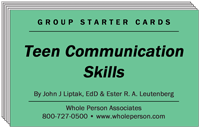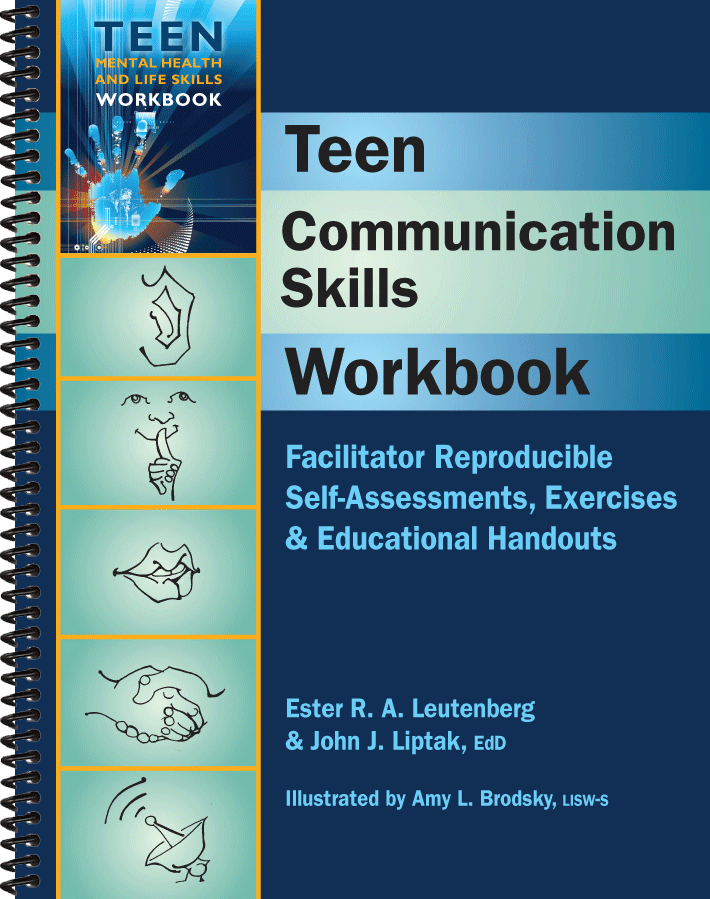Teen Communication Skills
Facilitator Reproducible Self-Assessments, Exercises, & Educational Handouts
Interpersonal communication is the process of sending and receiving messages with another person. It sounds easy, but it is not. For teens, effective communication can be challenging. The reason is that successful communication involves a very complex set of skills, as complex as those necessary for driving a car or reading a map. The complexity is that messages can be communicated and received in various ways, i.e., listening, speaking, signing, touch, and eye contact. Teens need adequate communication skills to survive and thrive in our challenging society. Effective communication skills are critical in many walks of life, including:
- Developing and maintaining friendships
- Participating in the community
- Doing well in school
- Functioning successfully in a group or family
- Maintaining and succeeding on a job
- Relating well with siblings
- Maintaining close relationships
Teens these days do not have adequate practice in communicating with others because of the use of texting, social networking, email, and instant messaging. Teens rely on impersonal communication means and often lack the skills to engage in face-to-face communication. They may also lack the ability to read verbal and non-verbal cues and to understand tone. The good news is that communication skills can be taught, learned, and improved through practice. The better the communication skills, the more prepared and successful teens will be.
Over the last century, many different workbooks, workshops, and self-help systems have been developed to help people explore communication issues. In the past twenty years, many research studies have focused on the value of self-reflection and journaling to explore personal characteristics, identify weak behaviors, and examine thoughts and feelings that lead to ineffective behaviors. This book is unique because it combines powerful psychological tools designed to enhance communication skills: self-assessment and journaling.
The Teen Communication Skills Workbook contains five separate sections. In each, participants will learn more about themselves as well as the impact of skillful and non-skillful communication:
- Active Listening Scale helps individuals determine how well they listen when communicating.
- Nonverbal Communications Scale helps individuals examine how their body language affects interpersonal communication.
- Communications Skills Scale helps individuals measure how accomplished they are at using communication skills to initiate, build and maintain interpersonal relationships.
- Cross-Cultural Communication Scale helps individuals explore how well they communicate with culturally different people.
- Negotiation Skills Scale helps individuals explore how well they negotiate to get what they want without manipulating or alienating other people.
This workbook is also available in PDF eBook format, making it simple to store on your computer or mobile device and to access with a PDF viewer. The PDF format allows you to easily print copies of the activities and worksheets during therapy and counseling sessions.
 Teen Communication Skills Card Deck
Teen Communication Skills Card Deck
Need a creative way to start your session? Use the Teen Communication Skills Card Deck. The open-ended questions will break the ice and stimulate conversation. Use them alone or in conjunction with the corresponding page in the book.
Sample Questions:
Active listening sounds so easy. What do you think it means?
Passive people do not express their own needs and feelings, or express them so weakly that people do not pay attention. How has being passive, or someone being passive with you, caused problems for you?
Where do most of your negotiations occur and with whom (no names)? When do they occur and what do you dislike about the situation?


